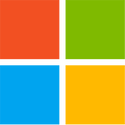Thursday, June 9th 2022

OEMs Under Pressure from Microsoft to Stop Use of HDDs as Boot Drives from 2023
PC OEMs have revealed to market intelligence firm Trendfocus that Microsoft wants them to stop the use of hard-disk drives (HDDs, or mechanical hard-drives) as the main boot device in products powered by Windows 11, from 2023. It's not known how the company will go about enforcing this. One theory holds that it may amend the Minimum System Requirements for the operating system to specify a flash-based storage device, such as an SSD. If push comes to shove, the OS could even refuse to deploy on a machine with an HDD as the boot device.
What's also not known is how this affects SSHDs (hard drives with tiny flash-based storage media and an access-based data-juggling mechanism). Microsoft's decision should come as a boon for entry-level notebook and desktop buyers; as this segment sees OEMs use HDDs as the boot device, the most. There could be a push toward at least DRAMless QLC SSDs, or even single-chip SSDs. Regardless, it's clear that 2.5-inch HDDs are on their way out of the industry. HDD as a technology may still exist in the 3.5-inch form-factor, as they are in high demand from the data-center and surveillance markets as cold storage devices.
Source:
Tom's Hardware
What's also not known is how this affects SSHDs (hard drives with tiny flash-based storage media and an access-based data-juggling mechanism). Microsoft's decision should come as a boon for entry-level notebook and desktop buyers; as this segment sees OEMs use HDDs as the boot device, the most. There could be a push toward at least DRAMless QLC SSDs, or even single-chip SSDs. Regardless, it's clear that 2.5-inch HDDs are on their way out of the industry. HDD as a technology may still exist in the 3.5-inch form-factor, as they are in high demand from the data-center and surveillance markets as cold storage devices.

93 Comments on OEMs Under Pressure from Microsoft to Stop Use of HDDs as Boot Drives from 2023
Make it an OEM only part.
I think (almost?)all consumer OEM computers sold in Europe already have an SSD for the OS.
Hahaha...I will start using them again to see if someone can "make" me stop.
Essentially, this boils down to supply and demand, to manufecturing volume. These things are now shifting, especially with M.2 form factor gaining very fat traction in laptops, in gaming consoles too.
I'm afraid the market might not be able to "afford" slow SATA based controllers with slow and high capacity NAND to go with it, as demand for quick parts is at all-time high, and that's what the NAND fabricators decide to make, as well as the controller manufecturers and designers.
What can happen is that you get drives similar to the SN770, where innovation beats common perception of what an SSD can do. of Algorithms and smart design beating the need for DRAM to retain performance on high levels. This is where I would also tell SSD enthusaists to wait and see how WD's new technology for smarter caching, as well as operating system's way of smarter caching APIs will come handy. These tools will save costs for high capacity SSDs in the future.
This combination can "achieve" HDD speeds.
But i replaced last HDD's years ago with ultra cheap 128-256GB SATA SSD's that cost less than 30€ back then for my relatives. Some of those models even had some DRAM cache.
Currently i see 120GB TLC based SATA SSD starting from 15€ a piece an i even have surplus of old SATA SSD's that i could give away for free as they don't cost much considering new cost 15€. Im sure many people have these laying around.
MS should have enforced this when Win11 came out not years later. I mean they forced a lot more restrictive TPM from the start and are starting to enforce MS account more heavily now.